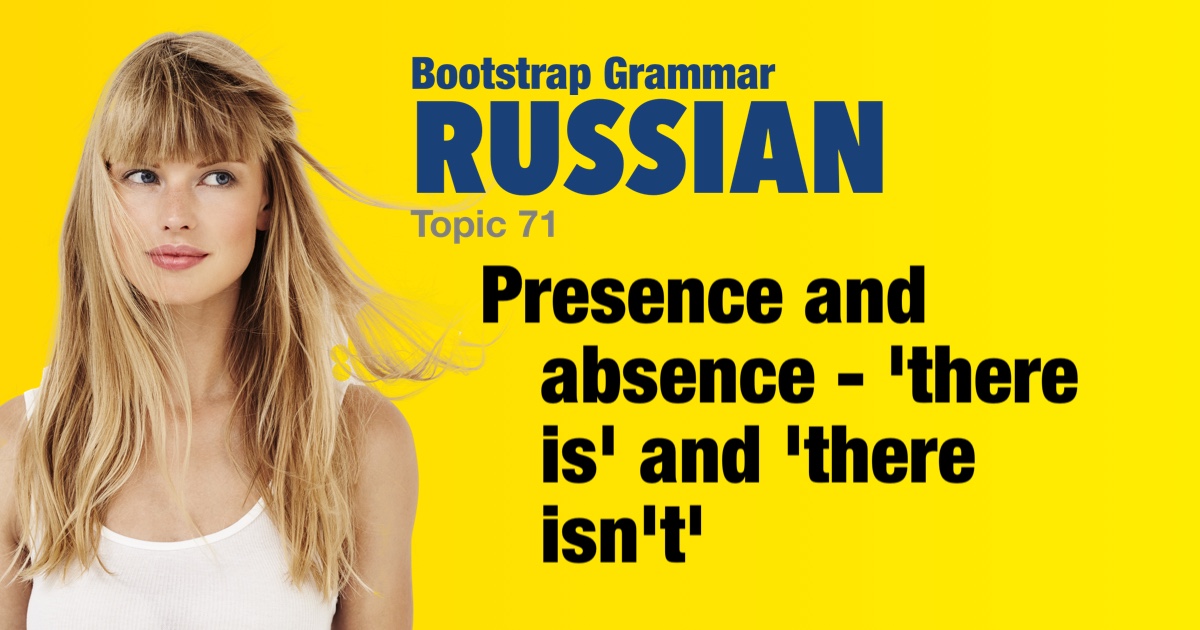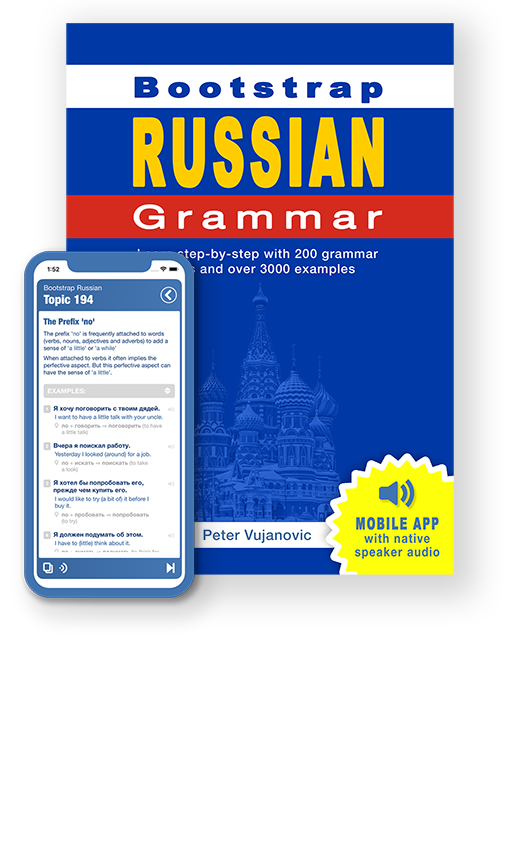Russian grammar - Presence and absence - 'there is' and 'there isn't' |
|||
|
|||
Expressing presence or existence we use the verb есть in the present tense and был/-ла/-ло/-ли in the past tense. With presence or existence the subject takes the nominative case. With non-existence or absence the subject takes the genitive. Expressing non-existence or absence we use нет in the present and не был/-ла/-ло/-ли in the past tense. The words есть and нет in these phrases can be on either side of the subject. In the past tense of this pattern we always use the neuter form былоregardless of the gender of the object. |
| Examples: | |
|
Есть вода.
There is water.
|
|
|
А нет молока.
But there is no milk.
|
|
|
Есть соль.
There is salt.
|
|
|
А нет перца.
But there is no pepper.
|
|
|
Была вилка.
There was a fork.
|
|
|
А не было ложки.
But there was no a spoon.
|
|
|
В поле есть дерево.
There is a tree in the field.
|
|
|
В стакане была вода.
There was water in the glass.
|
|
|
В блюде есть соль.
There is salt in the dish.
|
|
|
В стакане нет воды.
There is no water in the glass.
|
|
|
На вашем столе есть письмо.
There is a letter on your (formal) desk.
|
|
|
В центре города есть кафе.
There is a cafe in the centre of town.
|
|
|
В этой газете есть интересная статья.
There is an interesting article in this newspaper.
|
|
|
Рядом нет туалета.
Nearby here there is no toilet.
|
|
|
Здесь нет станции?
Is there no station here?
|
|
|
Не было пива в магазине.
There was no beer in the store.
|
|
|
В классе не было учителя.
There was no teacher in the classroom.
|
|
 |
|


 presence:
presence: 
